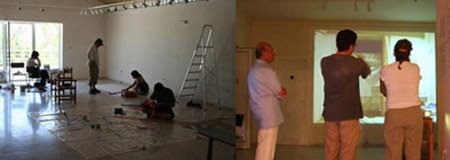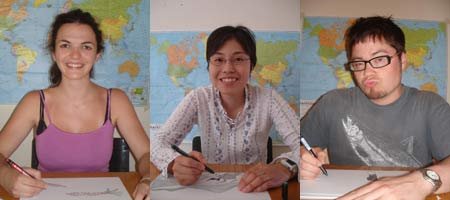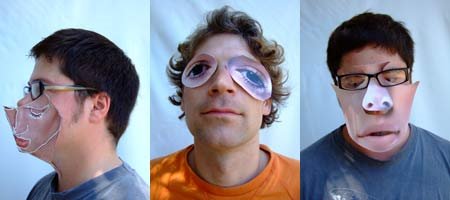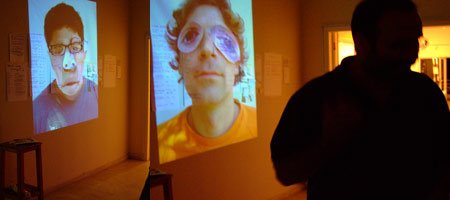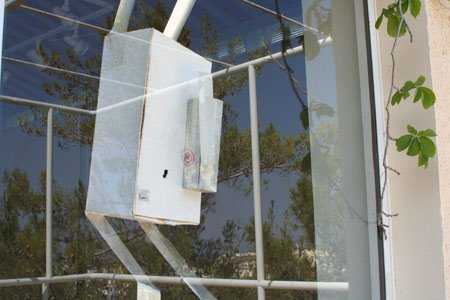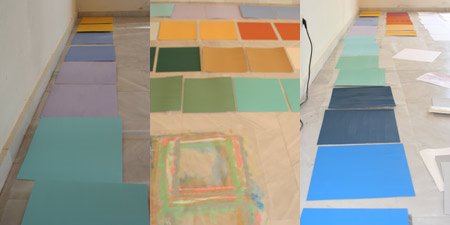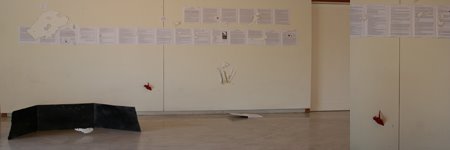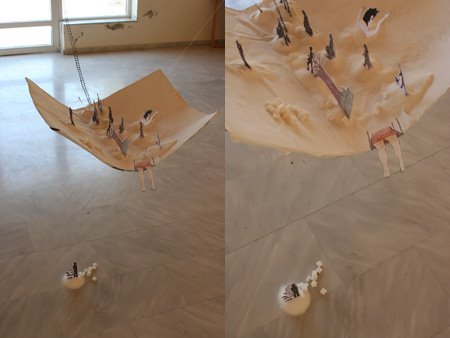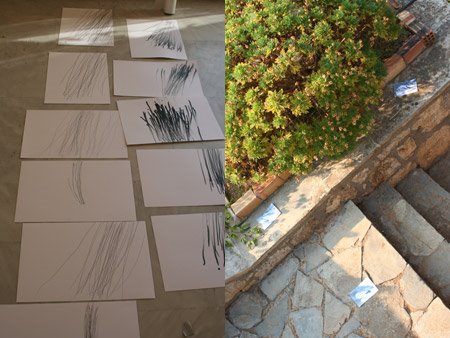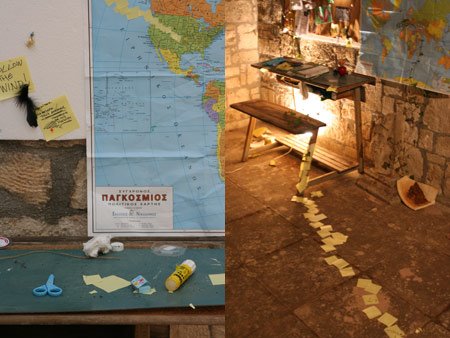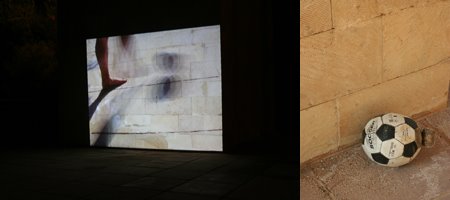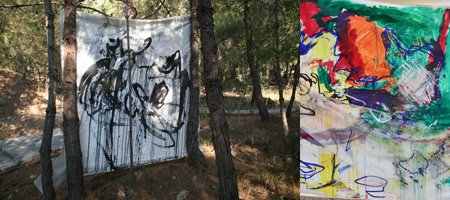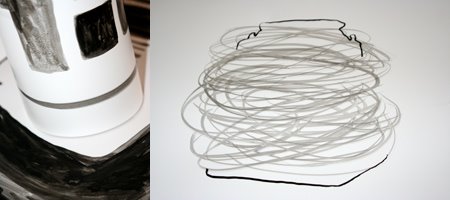PROPOSAL FOR WORKSHOP
H ΝΗΣΟΣ / ISLAND
UTOPIA -
EXPERIMENTAL AND INQUIRING APPLICATIONS IN CONTEMPORARY ART AND PRACTICE
6th Painting Studio ASFA
in collaboration with recent postgraduates from the MFA Painting
of the SLADE School of Fine Art
Timetable: Monday of 3 July - Monday of 17 July 2006
Number of Students: 15
Scientific person in charge: V. Vlastaras.
Supervising professor: Director of 6th Painting Studio Pr. Tr. Patraskidis
Quests: Pr Bruce McLean, Mr. Gary Woodley, Mr. Klaas Hoek.
Utopia is a concept that always fascinates artists as a free expression of the ideal and wish. Art, via the utopia is released by the restrictions of reality and finds its way to the expression of its visions. On the occasion of this relation, the workshop is dealing with the prolific and multi discussed significance of utopia.
The term utopia in the daily vocabulary is connected with the ideal, future, …, the unfeasible and creates margins for many and often contradictory interpretations.
Utopias are the places of dreams and hope for a better life, that give exit from the incomplete reality. In certain cases they oppose in scientific or biological laws, involving the metaphysics, sometimes they are ephemeral shelters that do not set particular sociopolitical reflections, but usually their creation is based on the intention to criticize the rendered institutions and the structure of existing society.
A concept that is connected with the ideal and wish and paradoxically is often susceptible of previously negative characterizations because of its distance from reality and other times praised interpretation because of its idealistic dimension and its renewing effect in the human history.
What does happens eventually with Utopia?
Is it a useless game or a serious proposal of salvation that is wronged by the lack of perspicacity of society? What happens when it does try to meet reality?
Utopias do not have real space, but maintain a relation of direct or reverse proportion with the real space of society. Either represent society in its perfect formulation or its opposite, in every case utopias are spaces by definition not real. Their counteractive stand opposite reality marginalizes them, forcing even their own “creators” to displace them in the non defined
space of imaginary isolating them in an island or a immense continent, exempted from every troublemaker contact.
The word "UTOPIA" - from the Greek word ' place ' and the prefixes 'ευ' and 'ου' that expresses simultaneously the place that is good and the place that does not exist - was created by the English Thomas More (1480-1553), in 1516 for the name of a imaginary island "that provides the happiest base for a civilized society that will last for ever" and it was used since then in order to characterize any cohesive proposal for an ideal state. Even if we can consider that the history of utopias begins with Thomas More’s utopia, the search of the ideal was a part of human existence from the beginning of its written history.
In this workshop we will research methods and tactics and we will ask from the students to collect material or to archive material that they already have and reconsider it, to think alternative ways of presentation of materials, ways of incorporation of them in their pictorial language.
The aim of the workshop is to exhibit the results of this research, the ideas or the work that will come out of it.
